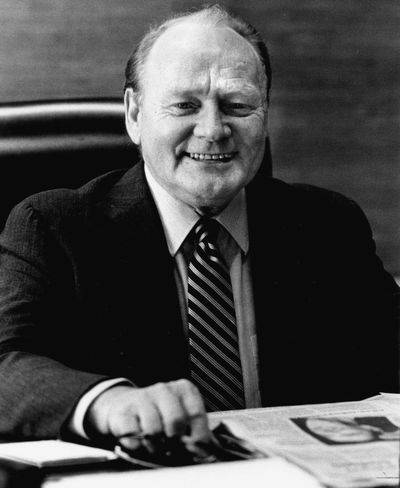Rights advocate Patterson dies at 89

ST. PETERSBURG, Fla. – Eugene Patterson, the Pulitzer Prize-winning editor and columnist who helped fellow Southern whites understand the civil rights movement, eloquently reminding the silent majority of its complicity in racist violence, died Saturday evening at his Florida home. He was 89.
Patterson was surrounded by family friends when he died of complications from cancer.
Patterson was editor of the Atlanta Constitution from 1960 to 1968, winning a Pulitzer Prize in 1967 for editorial writing and doing a signed column every day for eight years. He wrote about the civil rights movement at a time when many Southern newspapers were reluctant to cover it.
Patterson’s Sept. 16, 1963, column about the Birmingham church bombing that killed four girls, titled “A Flower for the Graves,” was so moving he was asked by Walter Cronkite to read it on the “CBS Evening News.”
“It was the high point of my life,” Patterson said in a June 2006 interview from his home in St. Petersburg. “It was the only time I was absolutely sure I was right. They were not telling the truth to people and we tried to change that.”
In 1968, Patterson joined the Washington Post and served three years as its managing editor, playing a central role in the publication of the Pentagon Papers.
He became editor of the St. Petersburg Times and its Washington publication, Congressional Quarterly, in 1972 and was later chief executive officer of the St. Petersburg Times Co. Under his leadership, the Times won two Pulitzer Prizes and became known as one of the top newspapers in the country.